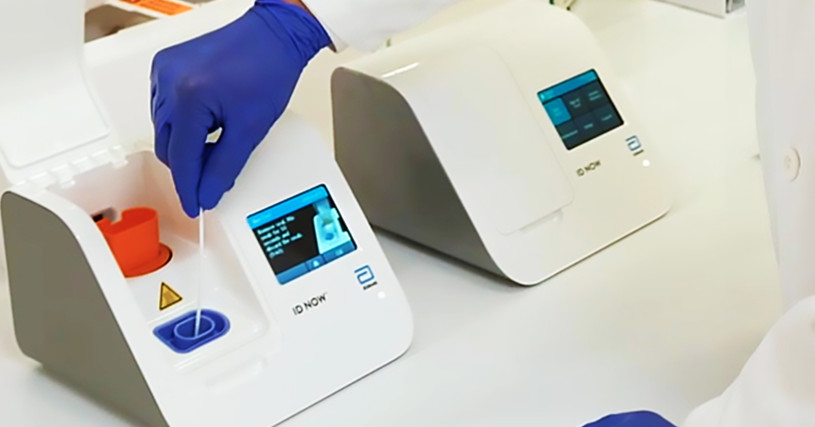Gov. J.B. Pritzker announced Thursday that 177 public sites are now offering free coronavirus testing across the state, with 65 new locations added since Pritzker reported last week that Illinois had reached the elusive goal of processing 10,000 tests in a single day.
Since hitting that mark last Friday, Illinois has run 96,551 total tests and hasn’t once dipped below that daily benchmark. The tests conducted over the past seven days account for more than 35% of the tests the state has conducted since reporting began in early March.
With his modified stay-at-home taking effect on Friday, Pritzker made it clear that testing for the deadly virus is “vital to our efforts to reduce social restrictions, get our economy going and to protect our residents.”
A drive-thru site at Norwegian American Hospital in Humboldt Park is among the new testing locations that have recently opened in minority communities that have been disproportionately impacted by COVID-19. Jose Sanchez, the hospital’s president and CEO, announced Thursday that over 80% of those tested since the site opened Tuesday have been Latino or African American.
Speaking to reporters at the governor’s daily press briefing, Sanchez said the new testing site helps “address the serious health inequities we have seen in our community.” The Sun-Times reported Thursday that the Latino community in Illinois has surpassed African Americans in confirmed cases of the coronavirus and could have the greatest number of patients among all races and ethnic groups within days.
“It is critical that we identify the individuals that have COVID-19 early so we can provide interventions and prevent the spread of virus in our underserved communities,” added Sanchez, who said the hospital is expected to run “hundreds” of COVID-19 tests by the end of the week.
In addition to the substantial increase in community testing sites like Norwegian, Pritzker announced that new drive-thru sites operated by the state will open next week in Waukegan and East St. Louis. Once those get up-and-running, Pritzker set a goal of collecting a total of 3,000 daily swabs at those seven sites.
While Pritzker said the state has taken considerable steps to address the shortage of supplies needed to run tests — including striking a deal with the White House to obtain hundreds of thousands of swabs and vials of the solution needed to transport them — he made it clear that the country “just doesn’t produce enough of these raw materials to meet the medical need.”
“Our procurement teams have been hard at work competing for those raw materials against every nation and every state in the open market,” Pritzker said. “And so far, we’re succeeding.”



















